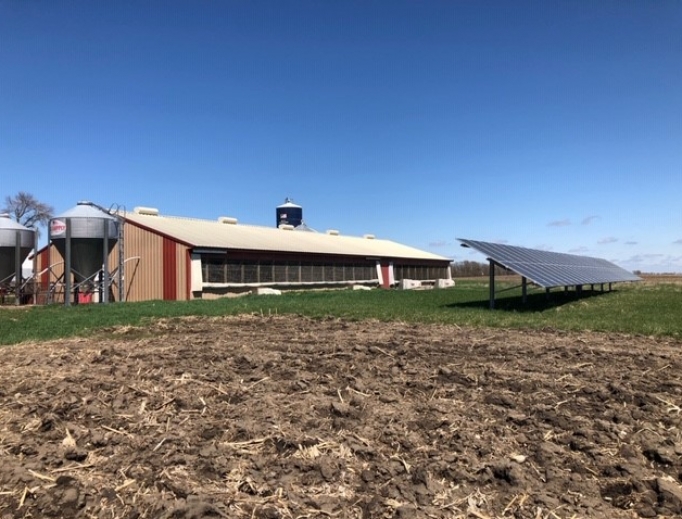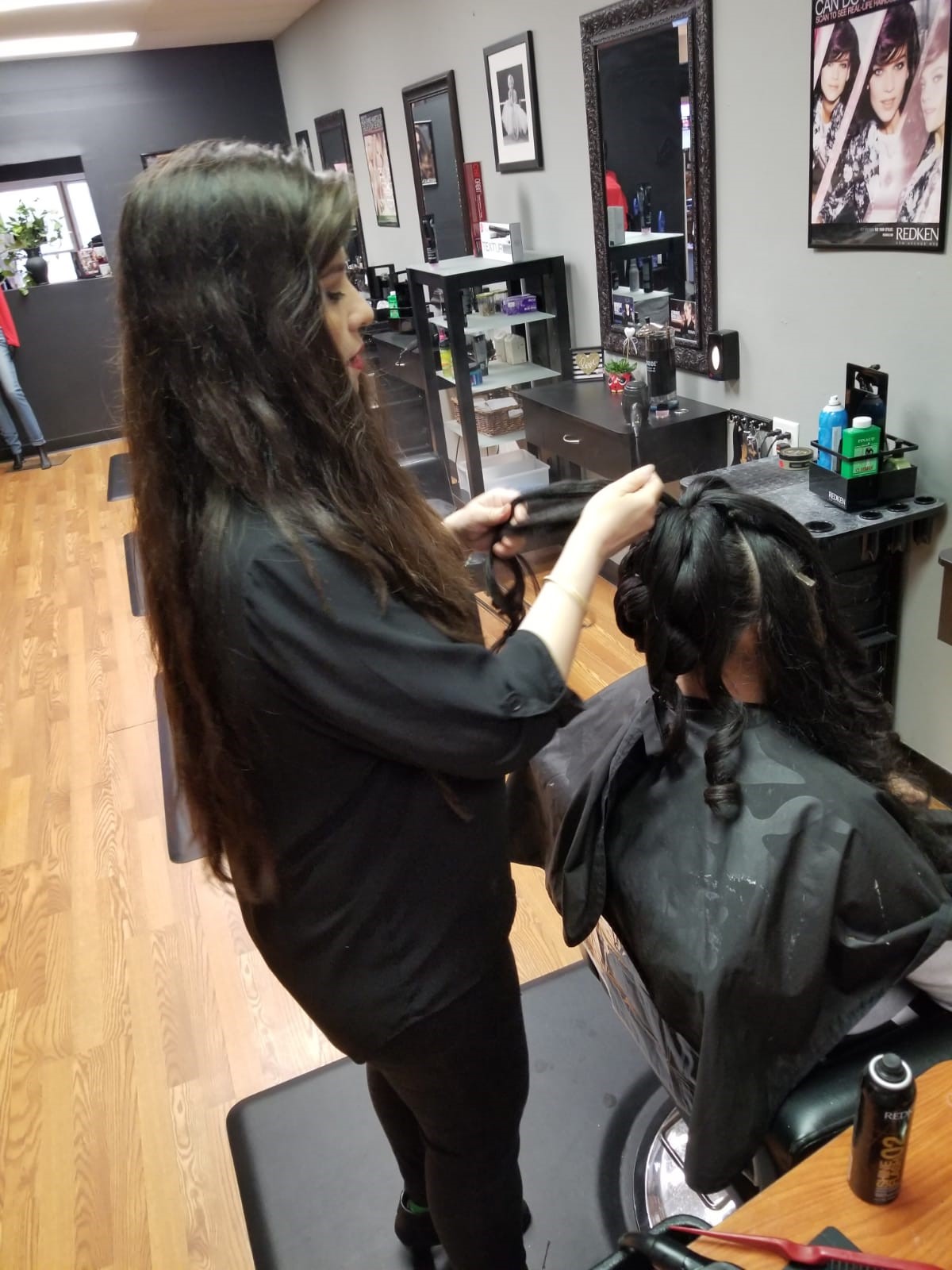Farmers and Business Owners Rely on Faith While Navigating Pandemic’s Turbulence
Agronomists receive an outpouring of support from consumers who are purchasing commodities, as small businesses deal with closures and other challenges brought on by the virus.

When two Iowa pork processing plants closed temporarily in April to comply with COVID-19 protocol, Harry and Kellie Sloot found themselves with 600 hogs they’d have to either sell quickly or euthanize.
The hogs needed to be processed within three weeks or they would no longer have been suitable for food consumption, Harry said.
“It was literally an effort to avert a disaster,” said Harry, whose family has owned the Winthrop, Minnesota, farm for more than 60 years. “The disaster would have been having to destroy these hogs and dispose of them.”
With their children’s help and an online order form, the couple took about 650 orders for pork from 500 hogs in two days, he said. They sold another 500 live hogs to small meat shops. Typically, the couple sells 6,000 hogs each year to the processing plants.

A view of the Sloot family farm in Winthrop, Minnesota
“It was beyond my dreams that we could possibly do that,” said Harry, who noted that crises like this bring out the good in people.
Other farmers around the country, including egg producers in Pennsylvania and Iowa, are also receiving an outpouring of support from consumers who are purchasing commodities not going to the usual markets because of COVID-19. At the same time, Catholic business owners dealing with closures and other challenges brought on by the virus talked about relying on their Catholic faith during day-to-day struggles.
The COVID-19 pandemic has changed how Nicholle and Jeff Dawson sell eggs from their 6 Acre Farms, LLC, in Parnell, Iowa.
The family, which has sold eggs for two years, bought an additional 800 free-range hens to produce more eggs for farmer’s markets this year, but those markets won’t open until later in the summer, Nicholle said. Without the demand from the markets and restaurants, the Dawsons have increased home delivery they previously only offered during wintertime.
“That’s a huge financial impact there because we wouldn’t have needed to buy” the hens, Nicholle said, adding that the Dawsons had to figure out how to continue caring for their flock.
The family now regularly make contact-free deliveries to more than 300 customers; these deliveries don’t completely make up for lost sales but show community support for their home delivery, Nicolle said.
Stay-at-home orders by civil authorities have prevented them from attending Mass at their parish, but the Dawsons place their challenges in God’s hands. “Praying — and then it comes to you what you need to do,” Nicholle said. “Definitely faith is a huge part of it.”
Yes, We’re Open
Religious-articles shop co-owner Timothy Smithe said his faith leads him to help others who also haven’t been able to attend Mass because of the virus. “They feel hopelessness,” said Smithe, who with his wife, Mary, has run Magdalene Religious Goods in Millcreek City, Utah, for eight years.
The Smithes didn’t close their shop during Utah’s stay-at-home order this spring because, as one of the only Catholic religious-goods stores in the Salt Lake City area, they feel they’re needed.
“We’ve been staying open ever since the beginning,” Timothy said of the shop, which sells books, rosaries, crucifixes, candles and, during the pandemic, hand-sewn masks.
Although they’ve stayed open, business is down 80%, largely because the Salt Lake City Diocese has postponed first Communions and confirmations, he said.
“We are just struggling along,” Timothy said.
Staying positive through the challenges helps the Smithes remain hopeful the situation will improve.
Sorry, We’re Closed
Adriana Contreras has seen God working, even as she’s had to close her Iowa City, Iowa, salon because of COVID-19. Several weeks before the shutdown she told her mother she’d like to stay at home and not worry about the salon for a few days.
“It literally happened,” Contreras said, adding that the closure enabled her to spend more time with her children.
The biggest challenge in closing Adriana’s Salon and Boutique, which offers hair, nail and facial services, was communicating with clients, as she and her staff had to cancel and reschedule appointments several times as the state’s reopen dates have changed.
Fortunately, Contreras has retained her five employees with a loan through the U.S. government’s Paycheck Protection Program, designed to help small businesses keep their workers on the payroll.

Adriana Contreras styles hair at Adriana’s Salon and Boutique before the pandemic warranted its temporary closure in Iowa.
“It’s so hard because you still have to pay all your bills and the regular things that you’re used to, and then there’s not enough coming in,” she said.
As Contreras prepared to reopen on May 15, she described how the salon would follow safety protocols. “We’re just thinking of the best way to have safety on both ends. That’s the main thing.”
Contreras and her family started praying a daily Rosary together during Lent, and they’ve continued during the Easter season.
She said her faith remains strong. “I just try to let [my family] know that things happen, and we just have to cope with it, pray, and everything’s going to be okay.”
‘Survive and Thrive’
Everything wasn’t okay when Jeff Havern opened Primo’s Restaurant, Bar and Catering in Yukon, Oklahoma, the week after the 9/11 attacks.
“That, we thought, was about the craziest thing we’d ever seen until COVID-19,” said Havern, adding that the virus’ effects on his Oklahoma City-area business and staff training makes this time even crazier.
The restaurant offered takeout when it was ordered to close its dining area during March and April. It reopened for dine-in service at half capacity on May 1.
“Fortunately, we’ve been able to pick up a little business there and survive, watching every penny,” he said. “By the grace of God, I think we’re going to make it through it.”
Havern said he has retained 90% of his staff, who have learned to go more slowly and concentrate on customer safety.
Customer support and patience, including from the nearby Catholic church, St. John of Nepomuk, has blessed Havern.
The parish’s influence is among the reasons he would like to enter the Catholic Church when he can commit fully to preparation after the pandemic.
The prayers he receives have given him confidence. “It allows me to say my prayers, but to go on throughout the day … doing the best I can do each day,” he said. “That’s about all you can do, and be thankful for what you have.”
Like Havern, Lee Iben started his business at a challenging time. Since launching his ActionCOACH Campus business in Iowa City, Iowa, during the pandemic in March, the certified business coach has been in “survive and thrive” mode.
The current climate “really just pushed the whole thing up against the wall” for his seven clients, he said, including Contreras. Even more, business owners need to know where profit margins lie and which areas in their business have higher profits, among other factors, he said.
“Business owners right now are just striving to stay alive, and they’re kind of coming at it from, ‘when the dust settles we can get into a routine of business coaching’; but at the same time, this is also when they need business coaching.”
Iben also has had to adapt to the changing environment by meeting virtually with clients.
He isn’t anxious because he’s focusing on the bigger picture. “It’s not all on me,” he said. “I’ll get up and do the work every day, [but pray] ‘Lord, you do the worry.’ That’s really been my family’s philosophy through all this.”
As Sloot said, faith is “our landing pad, our foundation. You have to have something to land on when the going gets rough, and that’s where we like to land.”
Susan Klemond writes from St. Paul, Minnesota.
















